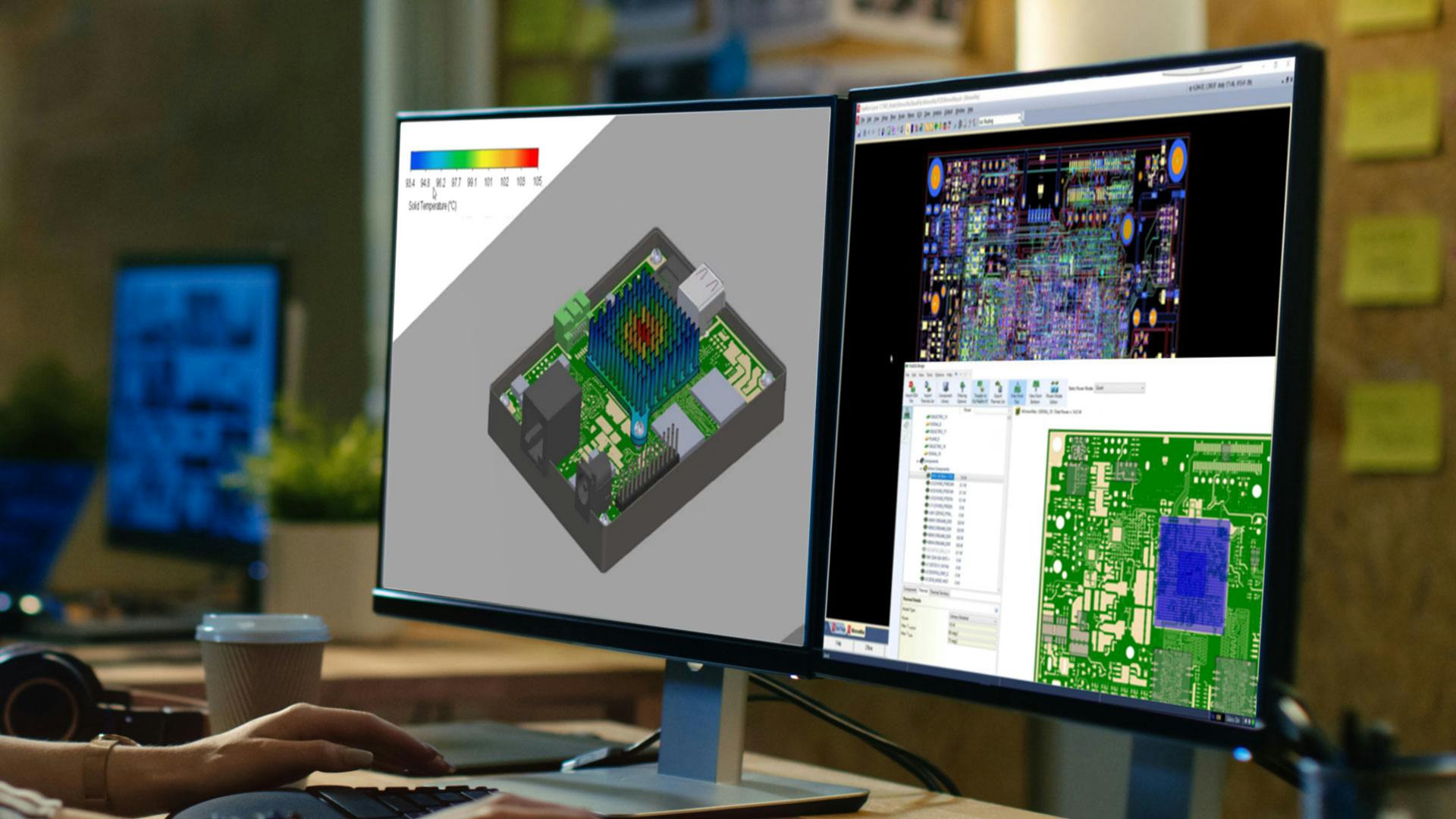Electronics has become the main source of added value, revenue and profit in many industries, disrupting traditional mechanical design workflows. The main mechanical and electrical workflows are concerned with design, and design is “just geometry”. How do we know what is being designed will perform acceptably? There is a need for the design effort to be simulation-driven, with performance confirmed at every step along the way. Thermal design is one of the most vexing challenges in the physical design of smart products. Thermal simulation requires far more information than just geometry, and for simulation-driven design performance must be assessed before we commit to design decisions.
In this webinar, we will discuss the macro-trends and how mechanical and electrical design workflows are being combined to address the top cause of PCB re-spins in late design. We will explore options for creating simulation models before MCAD and ECAD data is available, understand options for dealing with MCAD and ECAD data, and analyze specific needs in context of active power management control strategies for smart products.
What you will learn:
- An overview of the state-of-the-art in exchange of ECAD-MCAD geometric data
- The importance of taking a simulation-driven design approach for the physical design of electronic products
- The challenges that simulation-driven design brings, with a focus on thermal design of smart products
- The pragmatic approaches that can be taken to representing ECAD and MCAD data in early design
- Solutions for using data from ECAD and MCAD systems in thermal simulation across the development lifecycle
Who should attend:
- Engineering Directors
- Development Managers
- Research & Development Engineers & Scientists
- Thermal Engineer & Designers
- Thermal Specialists
Vorstellung des Referenten

Dr. John Parry
Strategic Business Development Manager, Simulation & Testing Solutions
Parry, der Branchenführer für Simcenter-Lösungen für die Elektronik- und Halbleiterindustrie, war General Chair der SEMI-THERM 21-Konferenz. Er ist Mitglied des JEDEC JC15 Thermal Standards Committee und in verschiedenen Konferenzausschüssen. Parry hat mehrere Vorträge als Gastredner und Grundsatzreden zu den Themen numerische Strömungsmechanik, Simulation der Elektronikkühlung und thermische Charakterisierung gehalten. Seine technischen Beiträge auf dem Gebiet der Elektronikkühlung umfassen die Entwicklung kompakter thermischer Modellierungsmethoden für Lüfter, Kühlkörper, Chipgehäuse und LEDs. Parry verfügt außerdem über Fachwissen in den Bereichen Konstruktion von Experimenten, Optimierung, thermische Charakterisierung und aktives Power-Cycling.
